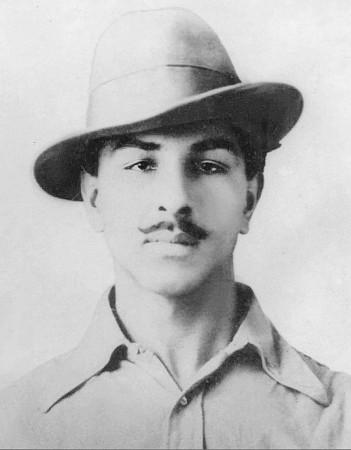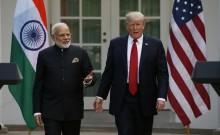
In an era marked by political turmoil, rising authoritarianism, and widening fractures across societies, both in India and globally, the voice of reason often appears drowned out by the clamour of identity politics, sectarian passions, and blind faith. Yet, history offers us guiding lights, voices that spoke not only to their times but also across generations. One such clear and prominent voice is that of Bhagat Singh, the young revolutionary whose name continues to ignite passion in India's freedom narrative and across the world as a voice of rational human freedom. While his sacrifice at the age of 23 made him immortal in the annals of the struggle against colonial rule, it is his rationalist thought and his declaration of atheism that remain strikingly relevant today. Singh's refusal to bow before blind belief was not a rejection of culture or tradition but an assertion that true liberation requires both political freedom and intellectual independence.
"A rebel's pen is as powerful as his sword. In Bhagat Singh's atheism lies his true revolution."
A Beginning Beyond Faith
Bhagat Singh's essay Why I am an Atheist, written in 1930 from Lahore Central Jail, where he awaited execution was not born of arrogance, as he himself clarified, but from rigorous reasoning and deep ethical reflection. He argued that belief in God was not necessary for courage, morality, or sacrifice. His defiance of both colonial rulers and religious orthodoxy was remarkable, for he declared that a revolutionary must be free not only from imperial chains but also from the chains of superstition. By doing so, he placed reason at the very heart of political action. This made Bhagat Singh not merely a fighter against the British, but a philosopher of freedom, anticipating the ethical foundations of a modern secular India.
"Merciless criticism and independent thinking are the two necessary traits of revolutionary thought." – Bhagat Singh
Atheism as a Revolutionary Ethic
In Bhagat Singh's framework, atheism was never a nihilistic dismissal of values; it was an ethical stance. By rejecting divine providence, he embraced human responsibility. If there was no God to ordain justice, then it fell upon humans to create just societies. This moral clarity resonates strongly in the 21st century, where blind adherence to ideology or identity often overrides reason. His atheism, thus, was not merely personal but political a call for accountability in human hands rather than divine will.
His position mirrored the intellectual ferment of his time. Rationalists like Periyar in South India, Jyotiba Phule before him, and later Ambedkar, too, challenged religious orthodoxy to lay the foundations of social justice. Globally, figures such as Karl Marx and Bertrand Russell were offering critiques of faith-based politics. Singh stood in their company, but with a distinctly Indian voice, rooted in the struggle for liberation.
Context of the Freedom Struggle
The freedom movement was not homogenous. While Gandhi rooted his politics in faith, Bhagat Singh represented the other pole: rationalist, secular, and socialist. Their divergence reflected the pluralism of India's intellectual ferment. Bhagat Singh's atheism complemented Gandhi's religiosity, showing that India's path to freedom was shaped by multiple streams of thought. This multiplicity is precisely what gave the movement resilience. To remember Singh only as a martyr is to diminish his far-sightedness. He was also an intellectual revolutionary who foresaw the dangers of communalism and dogma. His words serve as a reminder that independence, to be meaningful, must include liberation of the mind.
Relevance for Today's India
India today finds itself at a crossroads. The political climate is increasingly polarised, with debates on identity, religion, and nationalism dominating public discourse. In such a moment, Singh's insistence on rational thought offers an urgent corrective. His courage to speak truth to power whether colonial rulers or religious orthodoxy—remains a model for a democratic society under stress. As Indians grapple with questions of dissent, free expression, and secularism, Singh's voice rings louder than ever: freedom cannot survive where reason is silenced.
"It is easy to kill individuals, but you cannot kill ideas." – Bhagat Singh
His atheism, in today's climate, is a metaphor for the courage to think independently, to challenge both majoritarian certitudes and minority insecurities, and to place truth above expediency.
Global Relevance of His Thought
Bhagat Singh's philosophy transcends national borders. In a geopolitically fractured world with conflicts from Ukraine to the Middle East, and from Africa to Asia, irrational passions, identity wars, and dogma continue to drive destruction. What Singh foresaw in colonial India is mirrored globally today: when reason is subjugated by faith or ideology, violence often follows. His thought leadership provides a template for ethical resistance that is neither nihilistic nor fanatical, but deeply humanistic. He reminds us that building just societies requires not divine sanction, but human accountability and moral courage.
In the age of climate crisis, nuclear anxieties, and digital disruption, Singh's human-centric ethic, placing responsibility in our hands, has profound resonance. It calls upon global citizens to be thinkers, not blind followers; to be moral agents, not seekers of divine intervention.
Bhagat Singh as a Voice for the Future
The true measure of Bhagat Singh lies not only in his martyrdom but in his intellectual bequest. His atheism was a call for Indians to embrace critical thinking, to question received truths, and to shape their destinies with courage. In the words of Albert Camus, "A free man is one who refuses to lie to himself." Singh lived this truth. His thought is not a relic of history but a compass for the present, pointing towards a future where reason and ethics guide development.
A Living Legacy
As India and the world confront fractured politics and looming conflicts, Singh's legacy offers a path forward. His atheism was never merely about God, it was about refusing submission to any force, divine or political, that stifled freedom and reason. For a nation navigating its democratic challenges, and for a world threatened by irrational violence, his message is profoundly clear: the courage to think, to question, and to act ethically is the highest form of revolution.
Bhagat Singh's atheism is not a denial of faith but an affirmation of responsibility. In it lies both India's unfinished promise and the world's urgent need.
The Eternal Rebel of Reason
Bhagat Singh's atheism was never about denial; it was about responsibility. It was not about tearing down faith but about building freedom. His life and death remind us that the courage to question is the foundation of all liberation.
In a world fractured by dogma, his words echo as a call to conscience: freedom must mean the freedom to think, to doubt, to reason. In India, where democracy faces the twin challenges of unreason and division, his voice is urgently needed. And globally, where humanity confronts crises that demand rational, ethical responses, his thought is a guide.
"The sword of revolution is sharpened on the whetting stone of ideas."
Bhagat Singh's atheism is not a relic of the past but a beacon for the future. To honor him is not merely to remember his martyrdom but to live by the courage of his thought to dare to think freely, to act ethically, and to claim responsibility for building a just world.
[Major General Dr. Dilawar Singh, IAV, is a distinguished strategist having held senior positions in technology, defence, and corporate governance. He serves on global boards and advises on leadership, emerging technologies, and strategic affairs, with a focus on aligning India's interests in the evolving global technological order.]

















